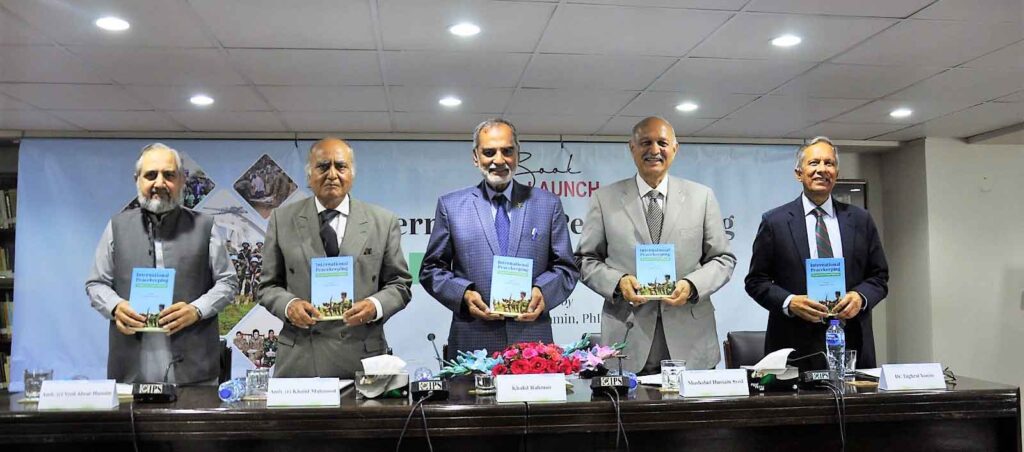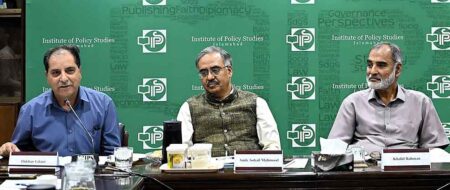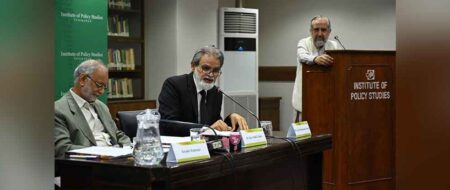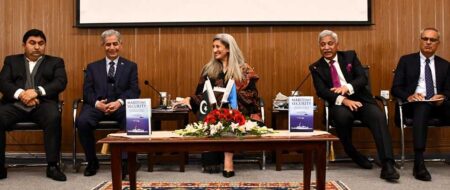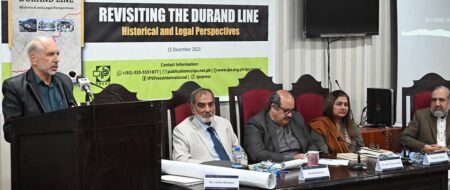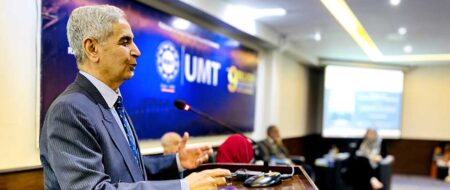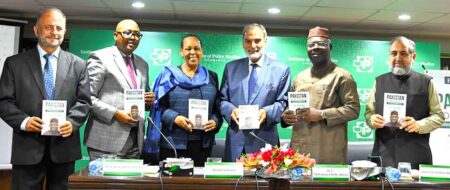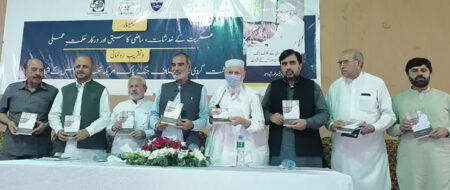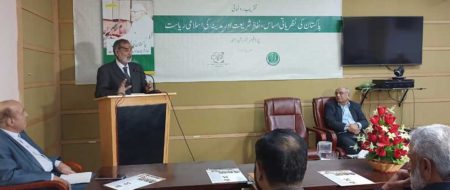Book Launch | ‘International Peacekeeping: Perspectives from Pakistan’
Pakistan’s contribution and perspectives in international peacekeeping highlighted
International peacekeeping is a success story of Pakistan and Pakistani peacekeepers, both civil and military, have been the country’s best goodwill ambassadors, said speakers during the launch ceremony of the book, ‘International Peacekeeping: Perspectives from Pakistan’, edited by Dr. Tughral Yamin and recently published by IPS Press, the publishing arm of Institute of Policy Studies (IPS).
The ceremony, organized by IPS in coordination with Centre for International Peace & Stability (CIPS), National University of Sciences & Technology (NUST), and Centre for Critical Peace Studies, University of Management and Technology (UMT) on March 8, 2023, was chaired by Ambassador (r) Khalid Mahmood, chairman Institute of Strategic Studies, Islamabad (ISSI).
The gathering was addressed as chief guest by Senator Mushahid Hussain Syed, chairman, Senate’s Defense Committee, while the other speakers included Khalid Rahman, chairman, IPS, Ambassador (r) Syed Abrar Hussain, vice chairman, IPS, Dr. Farhan Hanif Siddique, associate professor, School of Politics and International Relations, Quaid-i-Azam University, Dr. Muhammad Makki, associate dean, CIPS-NUST, Dr. Fatima Sajjad, director, Centre for Critical Peace Studies, UMT, and Dr. Tughral Yamin, the book’s editor and a senior research fellow at IPS.
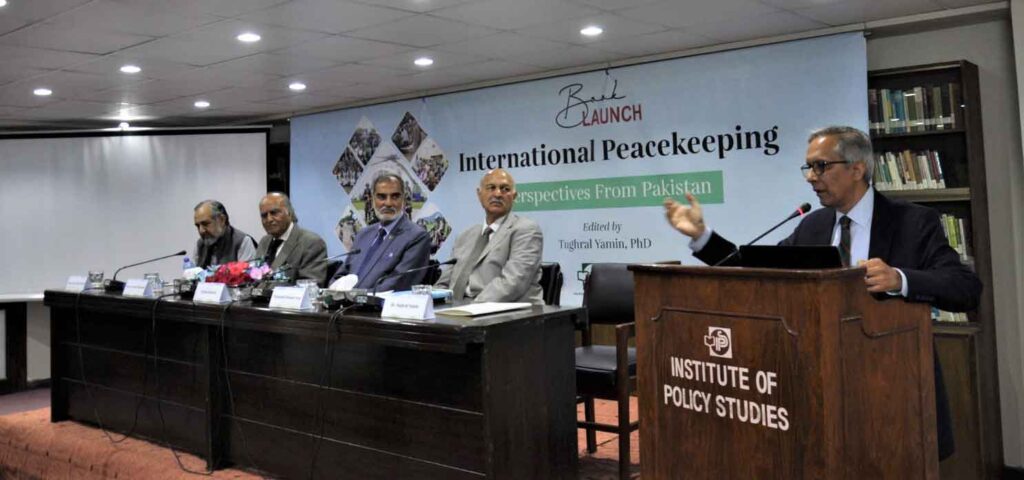
Senator Mushahid was of the view that Pakistan has been at the forefront of peacekeeping missions but has not received due recognition and reward at the UN and international level. Pakistani peacekeepers are the best ambassadors of Pakistan, he said, while reiterating the words of the first Indonesian president, Sukarno.
As such the book has rightly served the cause by focusing on this aspect because, in today’s nature of war and battle of ideas and narrative, practitioners should write more on the subject to build a stronger narrative, he stressed.
The UN has remained selective and inattentive to violations in Palestine, Kashmir, Gaza, and other Muslim-majority conflict areas, he also lamented.
Ambassador Khalid maintained that the role of UN peacekeepers and the concept of peacekeeping has evolved with the change in the nature of war. In addition to separating the combatants, now peacekeepers have to resolve the internal conflicts and perform disarmament, demining, elections, court setup, and development projects as needed. Pakistani peacekeepers have executed this evolved and more complex role in an affirmative manner, he emphasized.
Stating the significance of the book, Khalid Rahman underlined that such intellectual and practitioner insights on peacekeeping are genuinely helpful in the policy arena. He further mentioned that peacekeeping is the success story of Pakistan and this discourse very aptly exhibits that. Moreover, it testifies to the efforts of Pakistani peacekeepers, which must be further represented and recognized.
Dr. Siddiqui noted that the book is an interesting contribution as it goes beyond the militarized view of peacekeeping and dives into the importance of norms and culture in international peacekeeping, despite the power politics. As the core idea of the book is preventive diplomacy, it reaffirms the significance of dialogue, de-escalation, and peaceful resolution of conflicts as Pakistan’s voice, he added.
Peacekeeping is an important tenet of Pakistan’s foreign policy but it does not get the attention that it deserves; hence, there is a dearth of indigenous literature on the subject, highlighted Dr. Tughral. This book, a collection of articles written by Pakistani scholars and peacekeepers, is an endeavor to cover this gap.
He further underscored the importance for scholars and practitioners to understand the history, evolution, and mechanics of peacekeeping and peacebuilding. The whole cycle from the drawing board to execution and the completion of the mandate needs careful planning and attention and this book exactly does that, he highlighted. Therefore, it serves as a textbook for peace scholars as well as peacekeepers.
While appreciating the rationale of the book to put forward Pakistan’s voice, Dr. Fatima underscored that the book has pointed out practical problems based on empirical case studies. She added that many UN interventions have had unintended consequences or failed to meet their ambitious goals because of the liberal peace model.
She highlighted that there is a need to re-assess the liberal peace project and reconsider who and what the peace is constructed for, and how it is negotiated and renegotiated by the strong and the weak. For this, the national perspective on peacekeeping should be less concerned about ‘how we look’ and more about ‘what we see’, including the problems, she added.
Dr. Makki termed the book an incredible contribution to peacekeeping studies and stressed on highlighting Pakistan’s contributions and sacrifices during missions to bring peace and stability to conflict zones.
